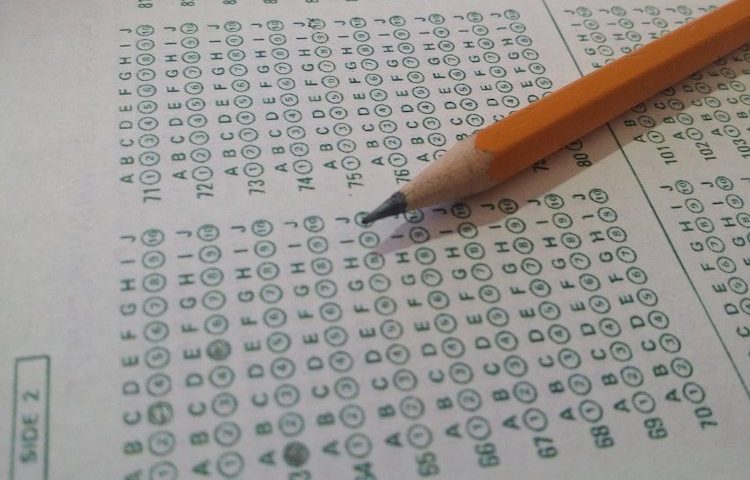The MCATs: What You Need to Know

Why Should You Apply Early Decision?
January 22, 2021
What are the Different Kinds of Dyslexia?
February 23, 2021Between researching and applying to medical schools, taking challenging undergraduate classes, holding nightly study sessions, and preparing for the daunting MCAT exam, pre-med students have their work cut out for them. The Medical College Admission Test (MCAT) is a standardized test required to enter medical schools in the United States. The test consists of multiple-choice questions split into four sections:
- Biological and Biochemical Foundations of Living Systems
- Chemical and Physical Foundations of Biological Systems
- Psychological, Social, and Biological Foundations of Behavior
- Critical Analysis and Reasoning Skills
Like all standardized exams, passing the MCAT requires a unique and strategic approach. Read on to learn more about the comprehensive MCAT exam.
Why is the MCAT Important?
Earning a coveted acceptance letter from prestigious medical schools takes a lot more effort than passing the MCAT, so it’s critical to present an exemplary application. The MCAT is the only standardized component in the medical school application. This standardization gives schools a benchmark metric to compare the pool of applicants and narrow down the list of qualified students.
How Difficult is the MCAT?
Due to the exam’s sheer difficulty, merely mentioning the MCAT can cause a top-performing student’s stress levels to skyrocket. This exam aims to push pre-med students to the limit because medical school is a serious commitment and the medical field needs intelligent workers. Three of the four sections of the MCAT focus on natural and social sciences and derive from lessons learned in undergraduate courses. In contrast, the Critical Analysis and Reasoning Skills section of the MCAT is not scientifically oriented and does not require specific content knowledge, but rather measures reading comprehension abilities.
Furthermore, the MCAT measures your ability to apply concepts and see how well you know the material. Memorization on this exam will only get you so far, so a thorough understanding of the content present in each section will help you reach your goal score.
How Long Does the MCAT Last?
The test often lasts 7 hours and 30 minutes, with optional breaks between sessions. The test breaks the time down by section. Each section has an allotted amount of time, with optional breaks between each section.
For the Chemical and Physical Foundations of Biological Systems section, students receive 95 minutes to complete 59 questions. For the Critical Analysis and Reasoning Skills section, students have 90 minutes to answer 53 problems. After that, students have 95 minutes to finish 59 questions for the Biological and Biochemical Foundations of Living Systems section. Finally, students have 95 minutes to complete 59 questions for the MCAT’s Psychological, Social, and Biological Foundations of Behavior section.
When Should You Begin Studying for the MCAT?
The average amount of time that students devote to studying for the MCAT ranges from 3 to 6 months. This grants students an adequate timeframe to study and fully prepare for the approaching extraneous exam. If you plan to apply to medical schools in August, you should take your MCTA by May. Planning your MCAT prep timeline with an experienced professional is arguably the best thing you can do to prepare. Working with a reputable MCAT tutor and creating an action plan will keep you on track until your test date.
You’ll want to give yourself enough time and wiggle room in case any unforeseen circumstances arise. Most undergraduate students complete the MCAT a year before they apply to medical school. Keep in mind, however, that MCAT scores do expire. Most medical schools will not accept an MCAT score older than two or three years.
How is the MCAT Scored?
After completing the MCAT, you will have to wait anywhere from 30-35 days to receive your official score. You will get four results for the sections and one total score. The section scores range from a low of 118 to a high of 132, with a midpoint of 125. The four scores from each section combine to yield your total score. A total MCAT score ranges from a low of 472 to a high of 528, with a midpoint of 500. A good score is around the 505-515 mark, making you competitive for medical schools like the University of Minnesota or Ohio State University. Scores like from 519-522 will make you eligible for schools like Harvard University or Johns Hopkins University, highly competitive schools.
The higher your score, the better your chances are of getting into medical schools. Still, a high MCAT score doesn’t automatically guarantee an acceptance letter. Try not to feel discouraged if you don’t reach your target score on the first attempt; you can retake the MCAT seven times total in your lifetime. After seven times, you can no longer take the MCAT. The only downside to taking the test multiple times is that it is time-consuming and costly. Nearly 50% of MCAT test takers register for a second attempt due to insufficient preparation.
How Can You Register for the MCAT?
To register for the MCAT, you must make an online account with the website for the Association of American Medical Colleges (AAMC). The AAMC administers and creates the exam. From their website, you can walk through the steps to apply. Registering for the MCAT costs $320. AAMC does have a free support program for those who may struggle with the price. There are also hidden fees to reschedule and cancel your test. Canceling your test date costs $160 while rescheduling costs $95. So make sure that you properly prepare before your first time to avoid extra costs. Students take the MCAT through computers at select testing sites. Throughout the testing calendar, January to September, there are 35 dates for students to take the MCAT.
Finally, you will need a government-issued ID to enter the test site and take the MCAT, so make sure you have all the required documents ready.
How Do Medical Schools Receive Your MCAT Scores?
Due to the test’s stress, the AAMC tries to minimize your work by making sending your scores to schools easy. According to the official site of the AAMC, “The American Medical College Application Service (AMCAS) is the AAMC’s centralized medical school application processing service.” Most U.S. medical schools use AMCAS as their primary application process; you can find the schools that don’t here. AMCAS collects, verifies, and delivers your MCAT information to schools of your choosing. All your scores are added to your AMCAS application, and you do not have to add your scores to your application manually.
Want to start preparing for your MCAT exam? Subscribe to our blog for more test-taking resources and tips to help you prepare for the upcoming MCAT test.


